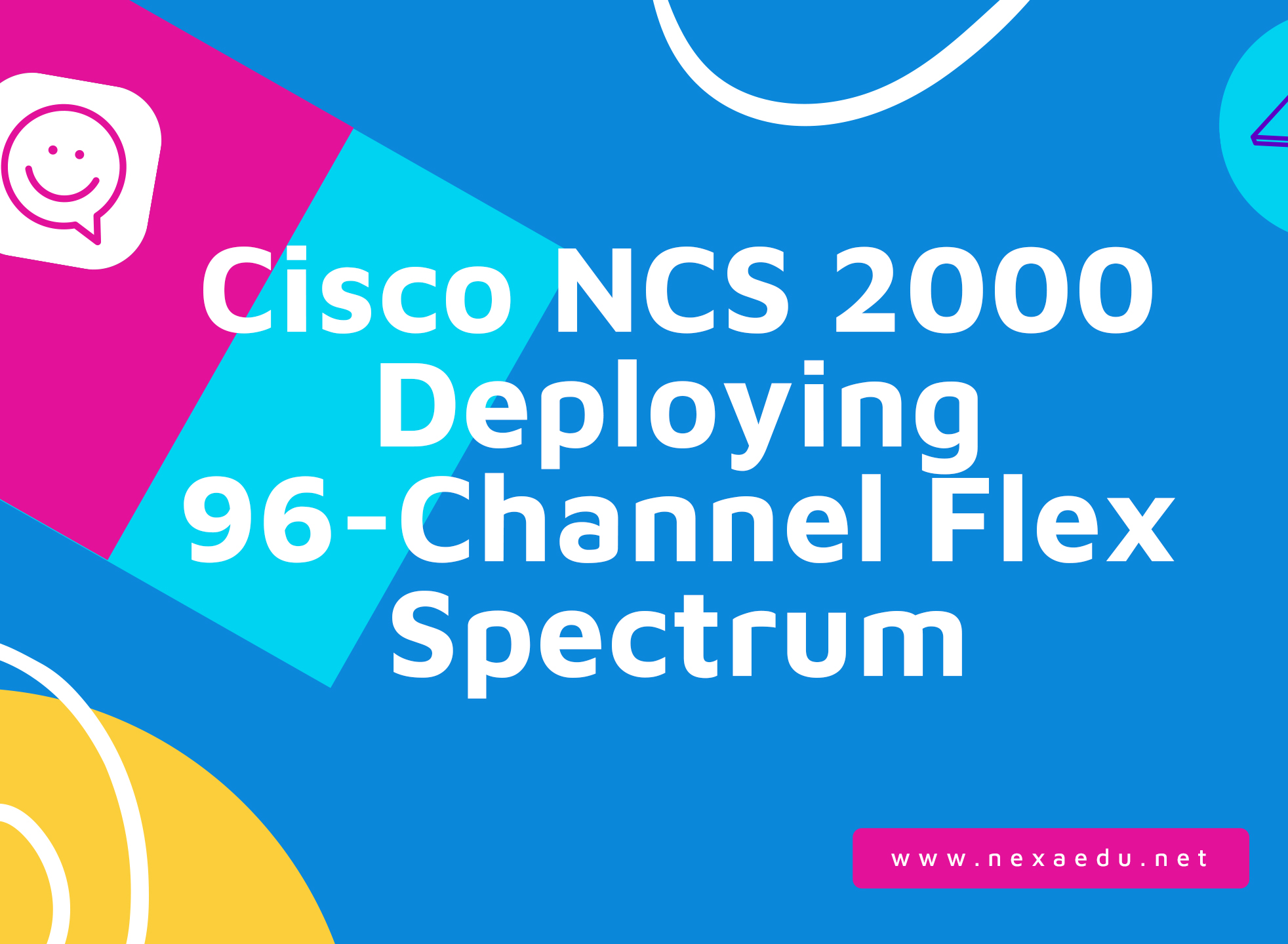About this course
Course Overview
The Cisco NCS 2000 Deploying 96-Channel Flex Spectrum course covers how to plan, configure and control optical networks using the Cisco Network Convergence System (NCS) 2000 Series Flex Spectrum platform. You will learn how to design Flex Spectrum networks with multidegree reconfigurable optical add-drop multiplexer (ROADM) multishelf nodes using the Cisco Transport Planner software, how to install and turn up the hardware, and use the Transport Planner output to configure an optical network and circuits using the Cisco Transport Controller software. Gain an understanding of which components and configurations take advantage of and/or are required for the Flex Spectrum 96-channel feature. Then you will learn how to configure more advanced networks with the colorless, contentionless, and omnidirectional features, and to configure mesh nodes with multifiber pushon (MPO) cross-connects. Finally, you will learn how to use the many tools and features available with Transport Controller to perform maintenance, testing, and basic troubleshooting of your optical network.
Target Audience
This course is designed for technical professionals who need to know how to deploy a Cisco NCS 2000 Series DWDM network with FlexSpectrum.
Course Objectives
After completing this course, you should be able to:
- Describe Hardware and components required and used with the Flex Spectrum feature
- Design optical networks in the Cisco Transport Planner software
- Install the hardware, including multishelf nodes
- Perform node turn-up and create circuits using the Cisco Transport Controller software
- Configure optical networks with multidegree ROADM multishelf nodes
- Configure optical networks with colorless, contentionless, omnidirectional, and MPO cross-connect advanced features
- Use the features and documentation with Transport Controller to perform maintenance, testing, and basic troubleshooting
Course Content
Module 1: NCS 2000 FlexSpectrum Product Fundamentals
Module 2: Shelf Layout and Software
Module 3: Documentation
Module 4: Cisco Transport Controller
Module 5: Cisco Transport Planner
Module 6: Shelf and Card Installation
Module 7: MultiShelf Fundamentals
Module 8: Node Turn-Up
Module 9: Ring Network
Module 10: Optical Channel Network Connection
Module 11: 10 x 10 card and 10G Muxponders and Transponder
Module 12: Optical Channel Client Connection
Module 13: 40, 100, and 200 Gigabit Ethernet Transponders and Muxponders
Module 14: Two-Degree ROADM
Module 15: Colorless and Contentionless Add/Drop
Module 16: Mesh Network and MPO Cross-Connects for Complex Nodes
Module 17: Omnidirectional, Colorless, and Contentionless Add/Drop for Complex Nodes
Module 18: Maintenance and Performance Monitoring
Module 19: NCS 2000 Troubleshooting
Labs
- Lab 1: Start the Cisco Transport Controller software and access the NCS shelves
- Lab 2: Configure the Cisco Transport Planner and create FlexSpectrum networks
- Lab 3: Setup the three-node FlexSpectrum network
- Lab 4: Install optical-channel network circuits and inspect power levels
- Lab 5: Optical Channel Client Connections
- Lab 6: Install 40 Gigabit Ethernet transponders on colorless ports and change the wavelength
- Lab 7: Install circuits into omnidirectional contentionless add/drop
- Lab 8: Explore maintenance and performance monitoring capabilities
- Lab 9: Troubleshooting FlexSpectrum
Course Prerequisites
Attendees should meet the following prerequsites:
- Completed the Cisco Fundamentals of Fiber Optics Technology (FFOT) video training.
Test Certification
Recommended as preparation for the following exams:
- 500-210 - SP Optical Technology Field Engineer Representative
Students should also review the NCS 2000 and NCS 4000 Technical Overview e-learning as well before taking this exam
Comments (0)






